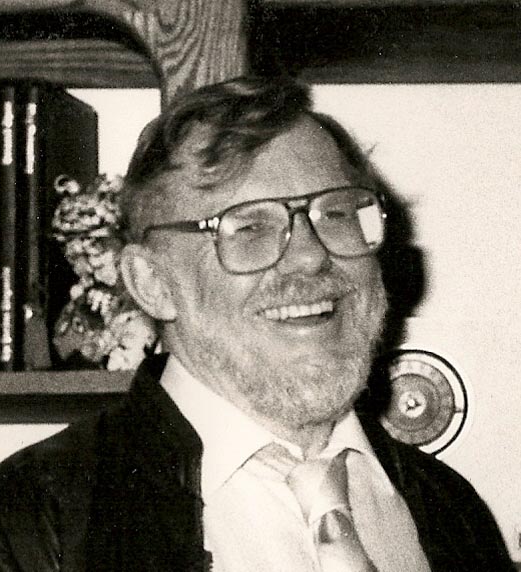

|

|
IN MEMORIAM
Peter S. Odegard
Professor of Music
UC Irvine
1929 – 2009
Peter “Sig” Odegard taught music theory and history, composition, orchestration, and advanced violin and viola at UC Irvine from 1966 until his retirement in 1994. He taught at UC Santa Barbara from 1958 to 1965 and one year as Assistant Professor at the University of Western Ontario. He came to UCI when it was still mud and unfinished buildings and before the Fine Arts Village was built across Bridge Road. Known to colleagues and students as “Sig,” Odegard directed the University Orchestra from 1966 to 1974. He chaired the Music area from 1979 to 1985, during which time he oversaw the establishment of the Remi Gassmann Electronic Studio in the School of the Arts, one of its few endowed facilities. In 1980, he began the UCI Summertime Music Workshop Festival in Memoriam Elizabeth Patterson Mitchell, a program for pre-college musicians funded by the Office of the President that remained active until 1988.
Odegard’s list of musical compositions begins after his graduation from Harvard College in 1951 and a period at Oxford University; he continued to compose a variety of works for small instrumental and chamber ensembles while studying musicology at UC Berkeley. After completing his dissertation on Arnold Schoenberg in 1964, Odegard continued to focus his attention on composition, viola performance, and teaching musicians. The University of Western Ontario commissioned his Essay for Concert Band for the Montreal World's Fair and Exposition in 1967.
At UCI, Odegard’s attention turned increasingly to stage music as he collaborated on productions in the School of Fine Arts, writing music for Shakespeare's Midsummer Night's Dream and Anthony and Cleopatra (1967), Aristophanes' Birds (1975), and Le bourgeois Gentilhomme (1982). Other works in these years include settings of The Owl and the Pussycat (Lear) as "a music history lesson for soprano and nine instruments," commissioned in 1985 in celebration of the 85th birthday of composer Ernst Krenek; The Piper at the Gates of Dawn (A.A. Milne) for flute, countertenor, narrator and digital delay (1986); The Drunkard, a musical comedy adapted from a play (attributed to P. T. Barnum, commissioned by Orange Coast College 1986); and Resurrection, or The Cremation of Sam McGee for narrator, chorus, and large orchestra, a commission from the Primavera Orchestra. For the UCI Thomas Mann Festival in 1988, Odegard “edited” a score by the composer-protagonist in Mann’s Dr. Faustus, Adrian Leverkuhn’s puppet opera The Calling of St. Gregory.
Odegard's highly literate musical style was influenced by his study and love of Schoenberg and his fellow serialists, yet checked by his own post-serialist sense of musical reality and his native cynicism. These opposites often expressed themselves in postmodern parody and stylistic quotation. He made the simple complex and the complex simple, and never ceased to teach, conduct, and believe in the importance of traditional classical repertories.
This led him in 1974 to found the Irvine Conservatory of Music, initially as a preparatory school for the UCI music program. It was a vital sign of culture in the vast emptiness of the recently incorporated City of Irvine, which had not yet lost its herds of cattle. As the Conservatory grew, it spawned several orchestras that each began with him as its conductor: the Irvine Youth Symphony (from 1976), the Orange County Community Orchestra (from 1987), and the Irvine Symphony Orchestra (1978 to 1991). For these efforts, the UCI Alumni Association presented Odegard with its Lauds and Laurels Award for Community Service in 1978, and he received similar awards from the Pacifica Foundation and the Orange County Arts Alliance. Because of his years teaching at UCSB, UCI, and the Irvine Conservatory, generations of string, theory, and composition students in southern California regard Sig as their musical inspiration and first mentor. A number are string teachers, composers, and teachers and professors of music in elementary and high schools, colleges and universities today.
Margaret Murata, Professor of Music